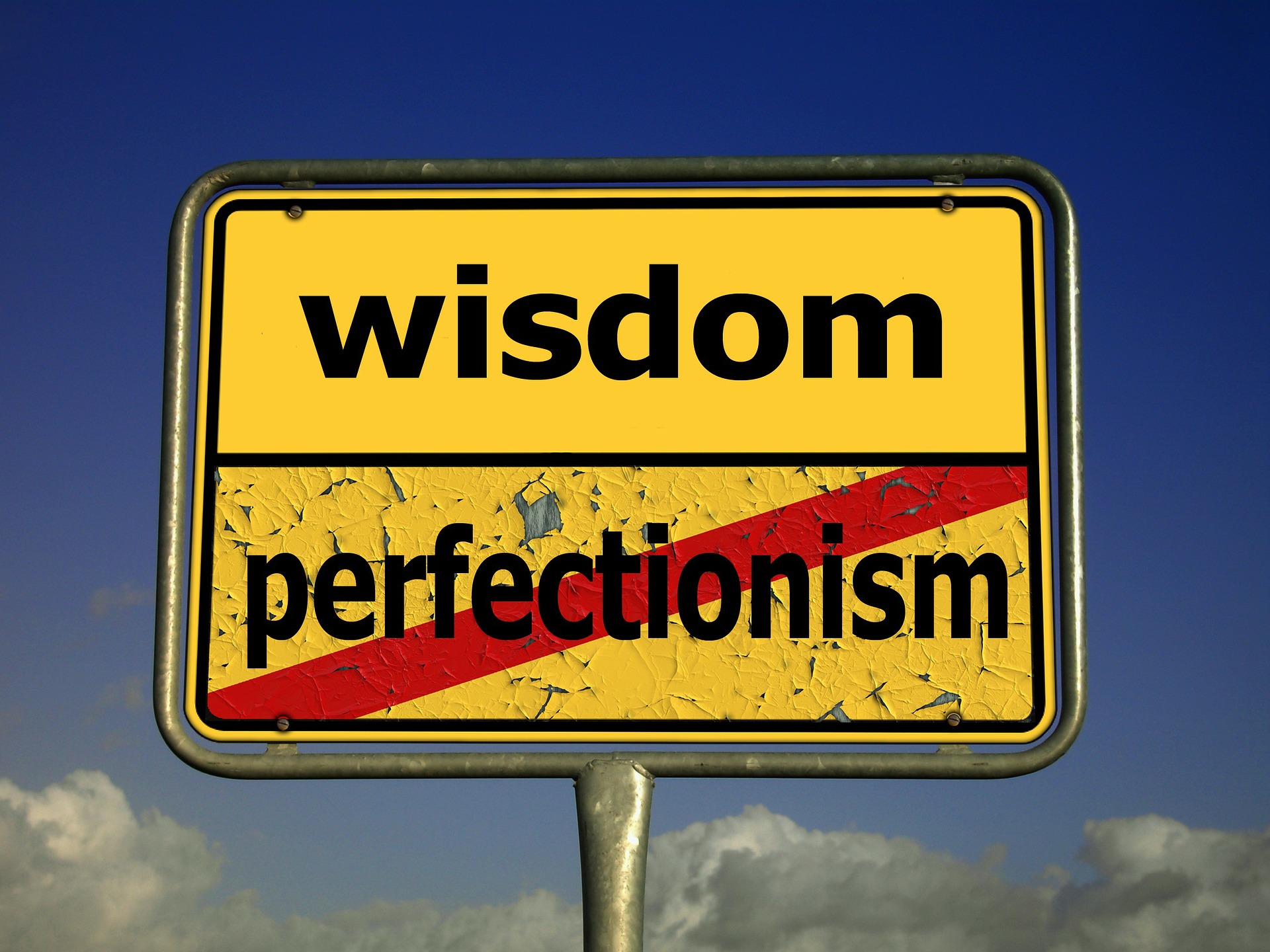When you aim for perfect, you aim for nothing. I had to learn this the hard way—more than once.
A sign on my desk reminds me daily: Perfect is not done.
I’m not a slacker — I see all the possibilities and they push into my face without asking. Trying to do it all, I thought multi-tasking increased my productivity. But trying to do everything, perfectly, left me frazzled. Threads of projects littered my desk with little evidence of anything finished.
Perfect Sidelines Every Time
One year ago, I decided to shift my business and focus on writing. I set a goal to publish one blog post every day — no matter what.
Then life crashed through the door, and I chose to care for my sister as she faced what would be her final days. She left. I could not move on. I stopped writing. I wandered into this barren place of emptiness and lost purpose.
After almost one year, I knew. I can’t tell you how I knew. The time had come to do what I knew was mine to do. Write. Simple, right? Just do it!
Oh, but that pesky perfection voice filled the emptiness in my head. Like Don Quixote, I chased a thousand windmills. My quest began for the perfect topic, perfect headline, perfect examples, perfect story.
Do you know what came out of all that searching and angst? Very little. No excuses. Perfect sidelined my writing. In an attempt to refocus, I started reading about writing. I studied about writing.
I have learned about writing from Natalie Goldberg, Jack Hart, Ann Lamott, Roy Clark, and Mary Oliver. All the stories I’ve devoured since I first learned to read, have melted into my heart.
All that good stuff—is not writing.
Emerging from that barren place after the death of my sister I regained my focus—and my life. The time had come to replace wishing and dreaming. I needed to take a hard look at what I wanted. I could no longer wait for the perfect conditions or the perfect invitation.
“Waiting for perfect means not starting.”
Seth Godin
My Hack for Moving Past Perfect
The time had come to get off my tush and out of my head. Since I am a hardcore introvert who can reflect for hours or days on end, that’s what I did.
What has worked in the past to get myself on track? What did I know about setting goals? Action steps, and setting milestones to measure progress always works.
Focus — I used that word with countless teams and executives. Look for the essential, the non-negotiable. Find the nugget of action that can build momentum to the desired outcome.
The question: What is essential?
You might say to me, “That’s simple, write. That’s essential.”
That might work for you, but the “just write” failed to offer the anecdote I needed.
While I understand the importance of focus, I never had a solid grasp on determining the “how” for myself. Greg McKeown’s, Essentialism: The Disciplined Pursuit of Less, laid out a framework I could use in my own life.
“Essentialism is not about how to get more things done; it’s about how to get the right things done.”
My next step wasn’t about how I could make more time for writing. What I needed to uncover were the right things I needed to be doing to write. One thing I knew for sure. Reading and studying could improve my knowledge about writing. But it wasn’t writing.
Three Assumptions and Three Truths
McKeown describes three assumptions we hold onto that hinder getting to the essential:
1. I have to . . .
I have to find the best topic that will engage the reader.
I have to be an expert on the topic or I won’t be credible.
I have to write 1500 words before I can publish.
2. It’s all important.
Until I get this down perfect, I can’t put my work out there. Keep searching for all the answers, then I can write.
3. I can do both.
I can comb the web for writing tips five or more hours a day and write.
If you want to move past the debilitating assumptions, you must change those three assumptions with three core truths. For me and my writing, I identified these three core truths:
1. I choose to . . .
I choose to move past perfection. Accept that I am not the best writer. But I’m willing to do the work to improve my skills–one word at a time.
2. Only a few things matter.
When it comes to writing, this matters–write every day. Write from a place of authenticity. Tell your story; it’s the only one you can tell. Keep improving. Hit publish.
3. I can do anything, but not everything.
I will write.
Once I realized perfect as the enemy, I worked on prioritizing my time. New routines and a clear end become non-negotiable. If you find yourself waiting for the perfect time, stop. It won’t come. Instead, take Greg McKeown’s advice.
“Simply ask yourself, ‘What is essential?’ Eliminate everything else.”
And always—



Leave A Comment